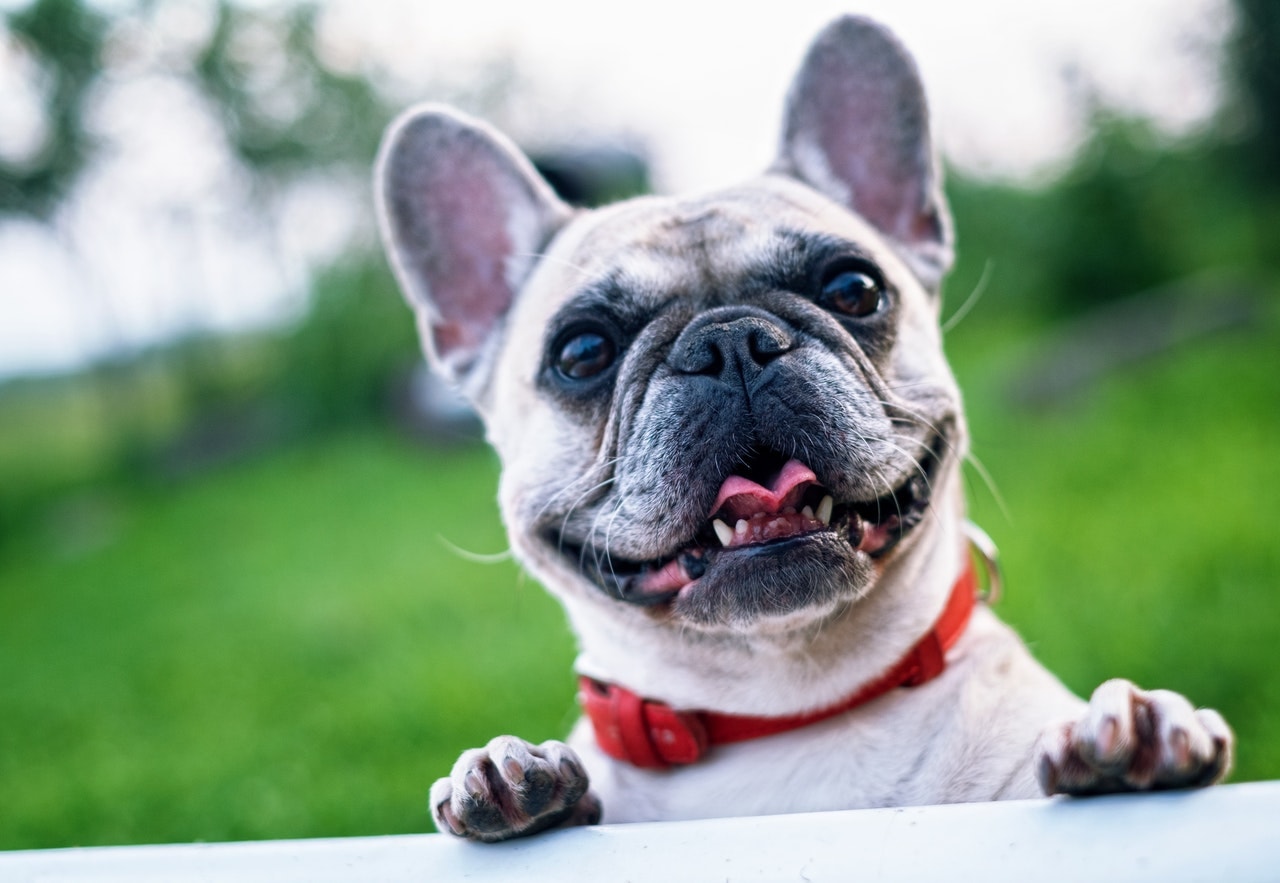With oral disease among pets at epidemic levels, it's important for responsible pet owners to understand the health risks associated with poor oral health and establish a routine to take care of their pet's teeth and gums.
According to the American Veterinary Dental College, oral disease is the most common clinical condition in adult dogs and cats. In fact, by just three years of age, most dogs and cats show some evidence of periodontal (gum) disease.
In today's post, we'll look at the health implications of oral disease and why it's so important to take care of your pet's teeth and gums. We'll also show you how to establish a simple routine to protect and improve your pet's oral health.

Why Is Oral Health So Important?
Bacteria in the mouth can lead to a build-up of plaque, which can then calcify into tartar. When tartar forms on your pet's teeth it can irritate the gums causing swelling, redness, and bleeding. Over time, tartar can build up under your pet's gum line increasing the risk of periodontal disease. This can eventually lead to receding gums and cause teeth to loosen and fall out.
Aside from the pain and difficulty eating that results from periodontal disease, there's also a risk of more serious conditions developing. Bacteria from the mouth can enter the bloodstream and cause health complications throughout the body. Studies have even associated periodontal disease with serious disease in organs such as the kidneys, liver, heart, and lungs.
Simply put, poor oral health can severely impact your pet's life and potentially shorten their lifespan.
Now for the good news. Oral disease is entirely preventable. And it's actually quite simple to maintain your pet's oral health throughout their lifetime. Read on for our top tips for taking care of your pet's teeth and gums.
Feed a Species-Appropriate Diet
The best foods to feed your pet are living, raw, fresh and species-appropriate. These foods support your pet's health, and protect them from illness and disease.
Raw foods such as meat, fresh fruits, and vegetables can help to scrub away plaque and prevent oral problems from developing. In comparison, poor quality pet foods have high levels of carbohydrates and sugars that provide nutrition for oral bacteria to grow.
Pets fed a raw food diet suffer far less from oral disease and dental problems, so feeding your pet a species-appropriate diet is a great place to start on the road to oral health.
Brush Your Pet's Teeth Regularly
It's a good idea to start a teeth cleaning routine as early in your pet's life as possible. This will ensure that they adapt easily to having their teeth cleaned on a regular basis. Ideally you should aim to clean your pet's teeth daily to ensure good oral health.
We recommend using CocoTherapy therapeutic-grade coconut oil as a natural, organic toothpaste. Coconut oil is rich is lauric acid and caprylic acid - medium-chain fatty acids (MCFAs) that have antibacterial, antiviral, antifungal, and antimicrobial properties. This makes it very effective for maintaining your pet's oral health.
The simplest way to brush your dog's teeth is by applying a small amount of coconut oil to a moistened piece of gauze, then brush with gentle motions to clean the teeth and gums. Your dog will love the sweet taste of the oil, and the gauze will make the task of brushing a whole lot easier!
Provide Raw Bones or Dental Chews
Dogs love to chew on raw, recreational bones; and the act of chewing them is a great way to grind down tartar on the teeth and reduce the risk of gum disease. Never give your pet cooked bones - they can splinter and cause a choking hazard. Large, raw bones such as hip bones are the best type to provide. Always ask your veterinarian if bones are a good choice for your dog. They may not be suitable for dogs with certain health conditions.
Dental chews are another good choice for both cats and dogs. They are designed to fight plaque and tartar build-up, and help keep your pet's mouth clean and healthy. Always choose high-quality dental chews - a seal of approval from the Veterinary Oral Health Council (VOHC) demonstrates that a product meets the council's standards for efficacy.
Take Your Pet for Regular Dental Checkups
As well as establishing an oral hygiene routine at home, it's important to arrange for your pet to have regular dental checkups with your veterinarian. This will ensure that any problems in your pet's mouth are picked up early on, before they pose a serious health concern.
If your pet's teeth need extensive cleaning and scaling, your veterinarian may recommend that the procedure be carried out under anesthesia. Starting an oral hygiene routine early in your pet’s life can reduce the need for professional cleaning later on.
Look out for symptoms such as sudden bad breath, red or bleeding gums, or difficulty eating. These could signal a serious dental problem, so arrange for your pet to visit the veterinarian as soon as possible.
We hope you've enjoyed today's post, and have come away with some practical tips to help keep your pet's teeth and gums healthy.
Any questions? Reach out to us in the comments section below.



